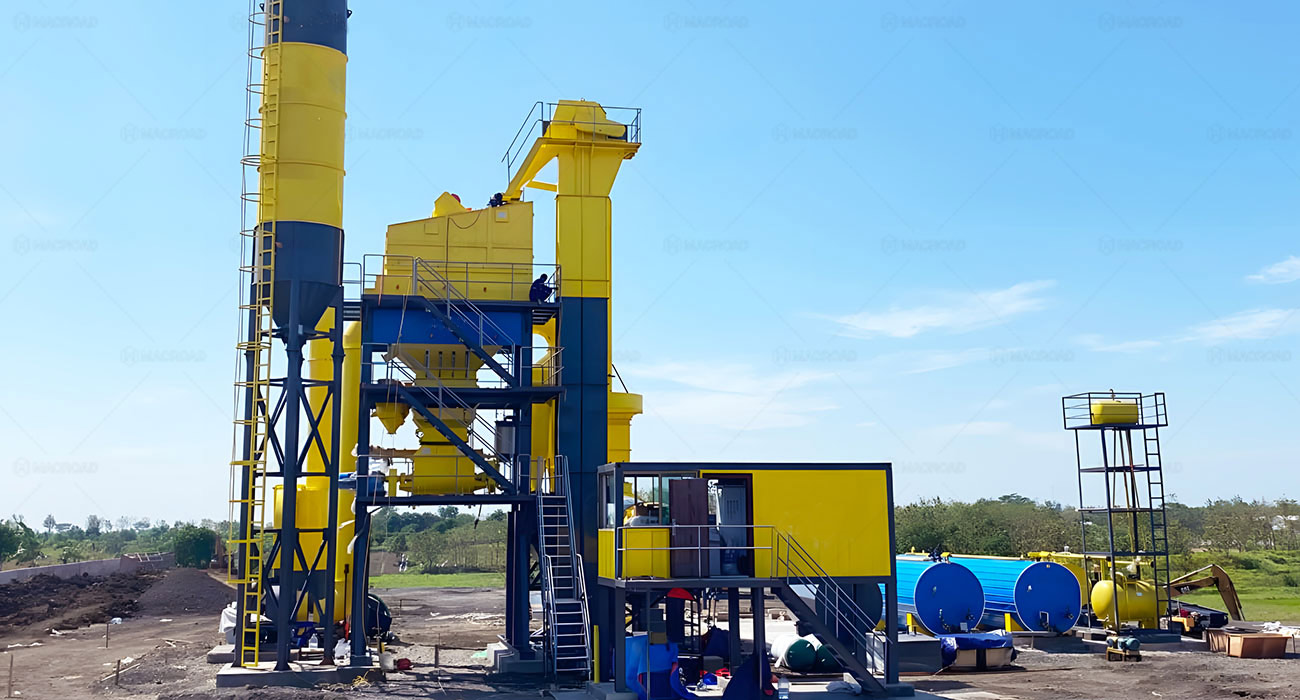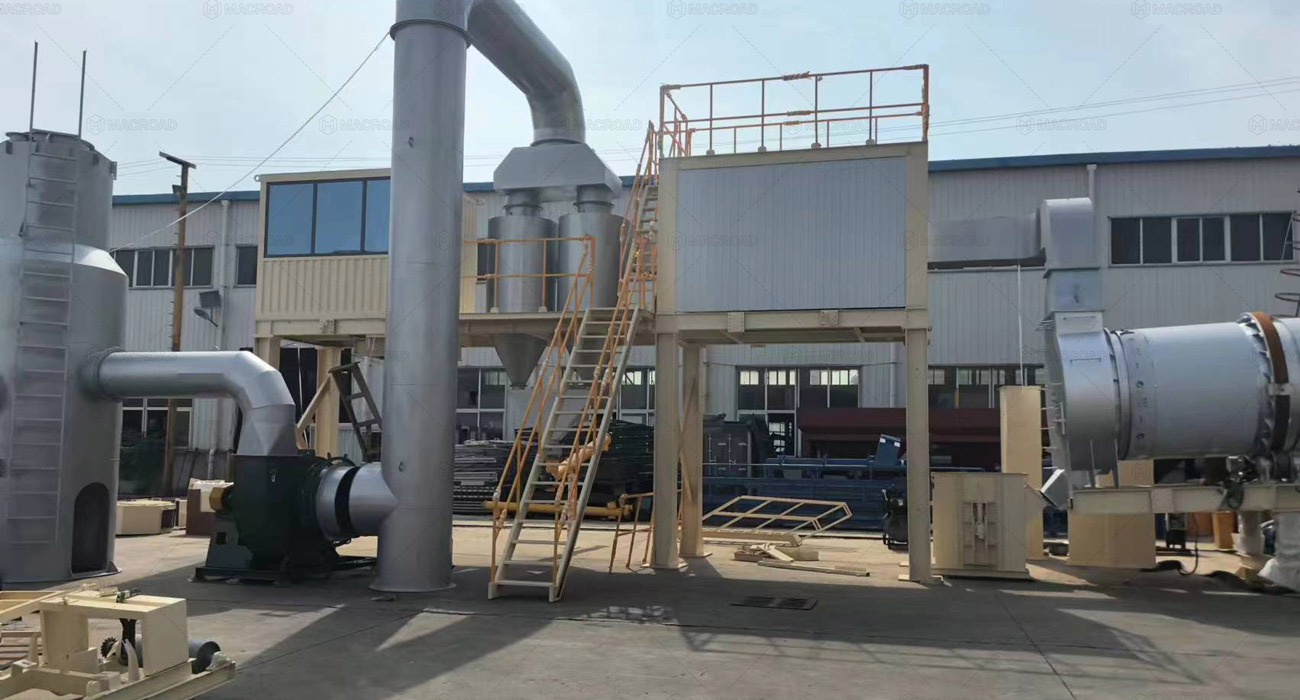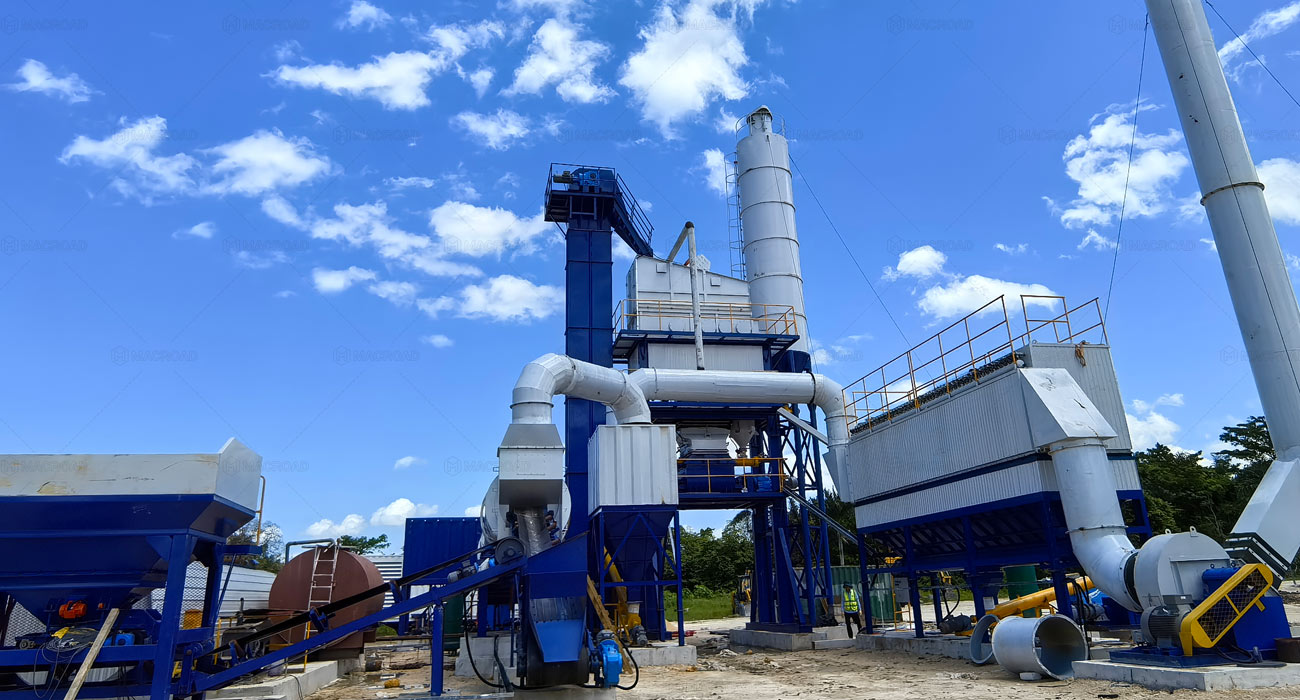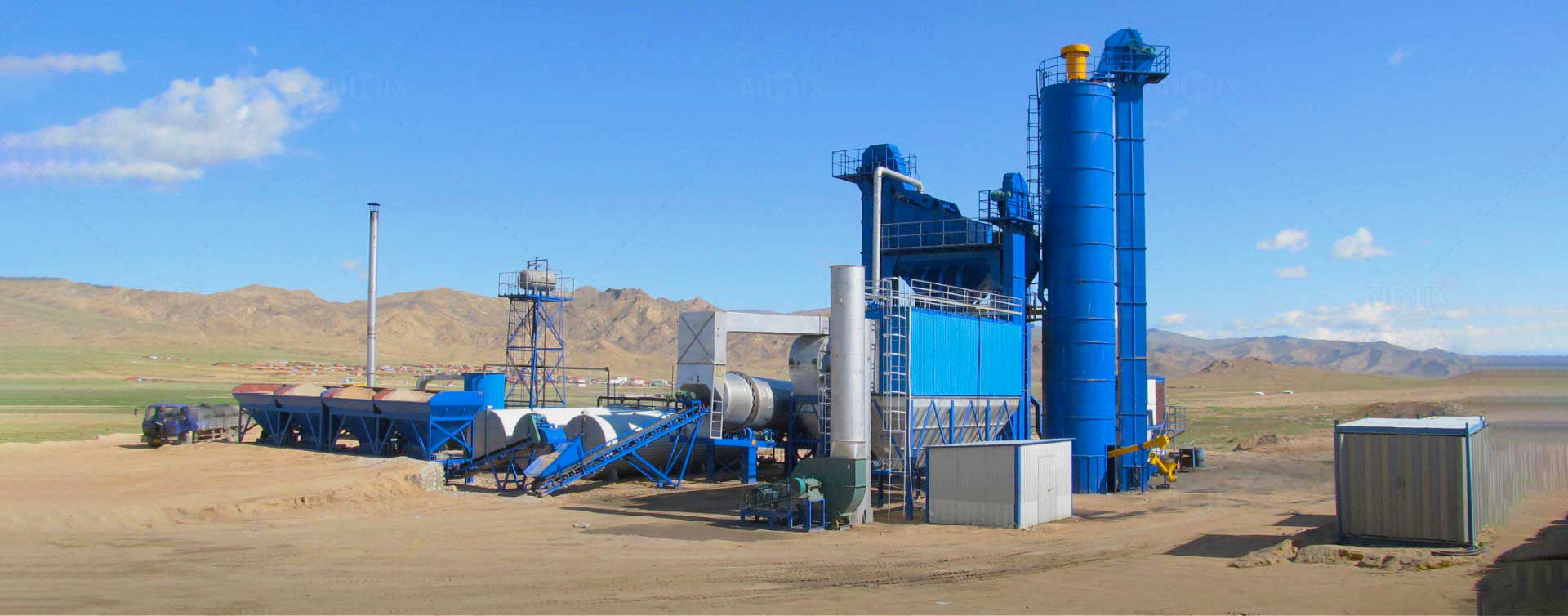The “drying-mixing integration” structure of double drum asphalt plants enhances continuous production efficiency, yet it imposes significant demands on the materials used due to the simultaneous high-temperature drying in the inner drum and mixing in the outer drum. This requires exceptional temperature resistance and wear resistance from the drum material. In contrast, the mobile asphalt batch mix plant features separated mixing components and heating components, leading to concentrated wear primarily in the mixing chamber. When selecting materials for core components in these two types of mobile equipment, it is essential to choose suitable wear-resistant and high-temperature resistant materials. This article discusses how to make these selections based on the specific working conditions of double drum and batch plants.

Understanding the Unique Requirements of Double Drum Asphalt Plants
In double drum asphalt plant, the inner drum is responsible for drying the aggregate at high temperatures while the outer drum mixes the asphalt. This integration allows for efficient continuous production but also exposes the inner drum to prolonged high temperatures and constant material friction. To ensure longevity and optimal performance, selecting high-chromium alloy for the inner drum is critical. This material provides the necessary heat resistance and durability to withstand the harsh operating conditions.
The outer drum, which handles the mixing process, must also be constructed from materials that can endure the stresses of continuous operation. Choosing high-quality steel with enhanced wear resistance for the outer drum can significantly improve its lifespan, reducing the need for frequent replacements and minimizing operational disruptions.

Material Considerations for Mobile Asphalt Batch Mix Plants
In contrast, the mobile asphalt batch mix plant operates under different conditions. Here, the mixing components and heating components are separate, leading to concentrated wear in the mixing chamber. This environment demands materials that can withstand phased loads and intermittent cooling intervals.
Wear-resistant cast iron is an excellent choice for the mixing blades in mobile hot mix plant. Its durability ensures that the blades can withstand the mechanical stresses of mixing while maintaining their shape and effectiveness over time. Additionally, the use of high-strength alloys for critical structural components can further enhance the durability of the mixing chamber, ensuring that the equipment operates efficiently with minimal downtime.

Balancing Performance and Cost in Material Selection
The choice of materials for core components significantly impacts the overall performance and maintenance costs of both types of mobile asphalt plants. Selecting inappropriate materials can lead to increased wear and tear, resulting in frequent replacements and higher operational expenses. Therefore, understanding the specific operational demands of each type of plant is crucial for making informed material choices.
For double drum asphalt plants, focusing on high-temperature resistance and wear resistance will yield a longer-lasting inner drum and outer drum. Meanwhile, for mobile asphalt batch mix plants, prioritizing wear-resistant materials for the mixing chamber can help maintain performance during phased loads and cooling periods. By selecting the right materials, operators can ensure that their equipment runs smoothly and efficiently, ultimately reducing overall maintenance costs.
Conclusion: Ensuring Longevity in Asphalt Plant Components
In conclusion, choosing the appropriate materials for the core components of mobile asphalt plants is vital for ensuring longevity and efficiency. For double drum asphalt plants, high-chromium alloy for the inner drum and durable steel for the outer drum are essential for withstanding high temperatures and continuous operation. In contrast, wear-resistant cast iron is ideal for the mixing blades of mobile asphalt batch mix plants, addressing the specific wear challenges these machines face. Macroad emphasizes the importance of material selection in enhancing the service life of asphalt production equipment, ultimately reducing operational and maintenance costs. By focusing on these material considerations, operators can achieve a balance between performance and cost-effectiveness in their asphalt production processes.
